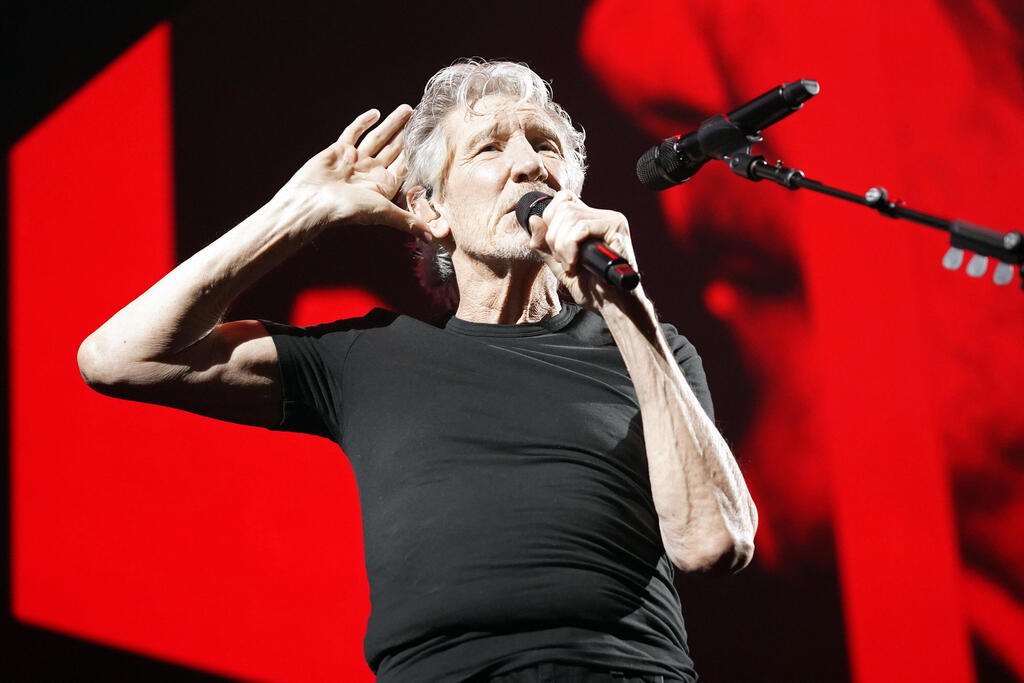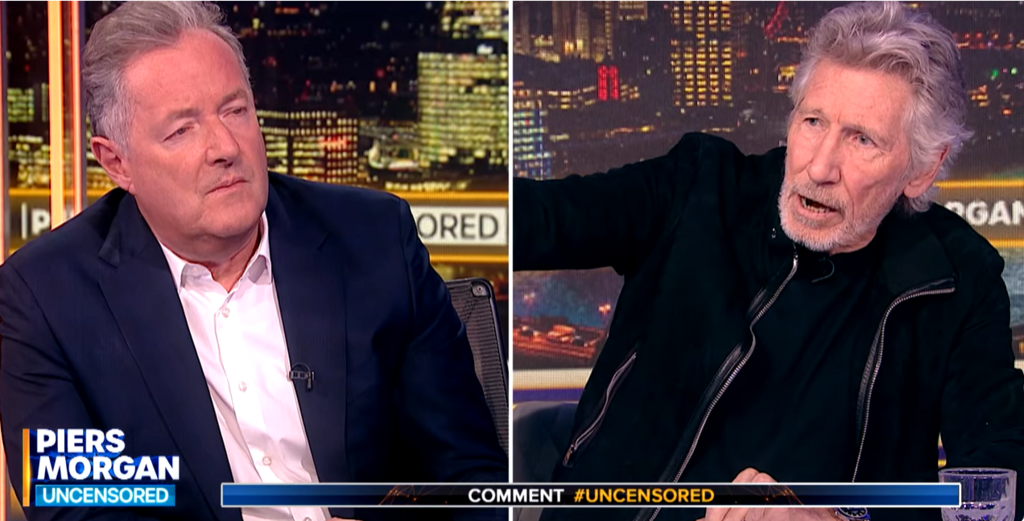Getting your Trinity Audio player ready...
Roger Waters has been a divisive figure for many years, and the recent nine-month-long conflict hasn't been necessary to highlight this. His inflammatory remarks last week during a tedious and confused interview with British journalist Piers Morgan are just another brick in the wall of animosity he continues to build against us. Waters doesn’t have to love us, and not every critique of Israeli actions is evidence of blatant antisemitism.
However, his shocking performance in front of the astonished interviewer—claiming Israel fabricated stories of rape and baby burning on the dreadful morning of October 7, including an especially absurd conspiracy theory about the delayed Israeli military response—crossed a glaring red line. No wonder that at a certain point in the interview, the former Pink Floyd leader began talking to himself; even the polite journalist opposite him had had enough of his nonsense.
While it’s infuriating to hear the lies Waters echoed, it’s uncertain whether the call from some radio stations in the country to boycott his songs is practical. Pink Floyd—not the man who was ousted from it nearly 40 years ago—is a band that many Israelis still love. Even if they decide that its songs no longer deserve public airtime, people here will continue to listen to its albums at home and in their cars.
They will rush to local tribute shows dedicated to its classics, and fly to see David Gilmour—formerly Waters’ bandmate and for many years now, his nemesis—who is soon embarking on a short European tour, during which he has promised to perform many of those old songs now being called to be boycotted.
Those Israelis who managed to get tickets to see Gilmour (a matter of luck and a few hundred euros, not including flight and hotel) are no less patriotic than those who quickly wished Waters things that cannot be put to paper. But they understand, as difficult as it is—and it is very difficult—that one must separate the man from the music he created.
Canceling someone who wasn’t part of your life even before you discovered what he did or says now is a very small-minded act. Deciding to give up part of the soundtrack that shaped you as a person and brought you countless hours of enjoyment over the years is too high a price. Why suffer twice, both from the man's current malice and from giving up the good he once created?
These radio stations can gladly forgo Waters' solo material. In any case, the few albums he released as a solo artist never approached the heights he reached while serving in his former band. Even so, it’s doubtful that any of them ever received high-profile airplay on local radio, even before Waters’ opinions went awry. But Pink Floyd was not a one-man show by its bassist.
Waters certainly had a crucial role in the band, especially in albums like Animals, The Wall, and The Final Cut, but for nearly 30 years, the British supergroup presented an impressive and fascinating display of power derived from the synergy between its members: the psychedelia of Syd Barrett in its early days, the enchanting keyboards of Richard Wright, the clever drumming of Nick Mason, and the solos Gilmour produced from his guitar since he took Barrett’s place.
Anyone for whom albums like The Dark Side of the Moon, Wish You Were Here, and Meddle are part of their life cannot (and should not) truly give them up. Those who revisit them—as I did in recent days—will find exactly the same abundance of joy they offered the first time they were exposed to them. And even if time has slightly worn some of them (which it hasn’t), the memory of that initial, pristine listening experience in junior high still tingles every fiber of my musical being.



